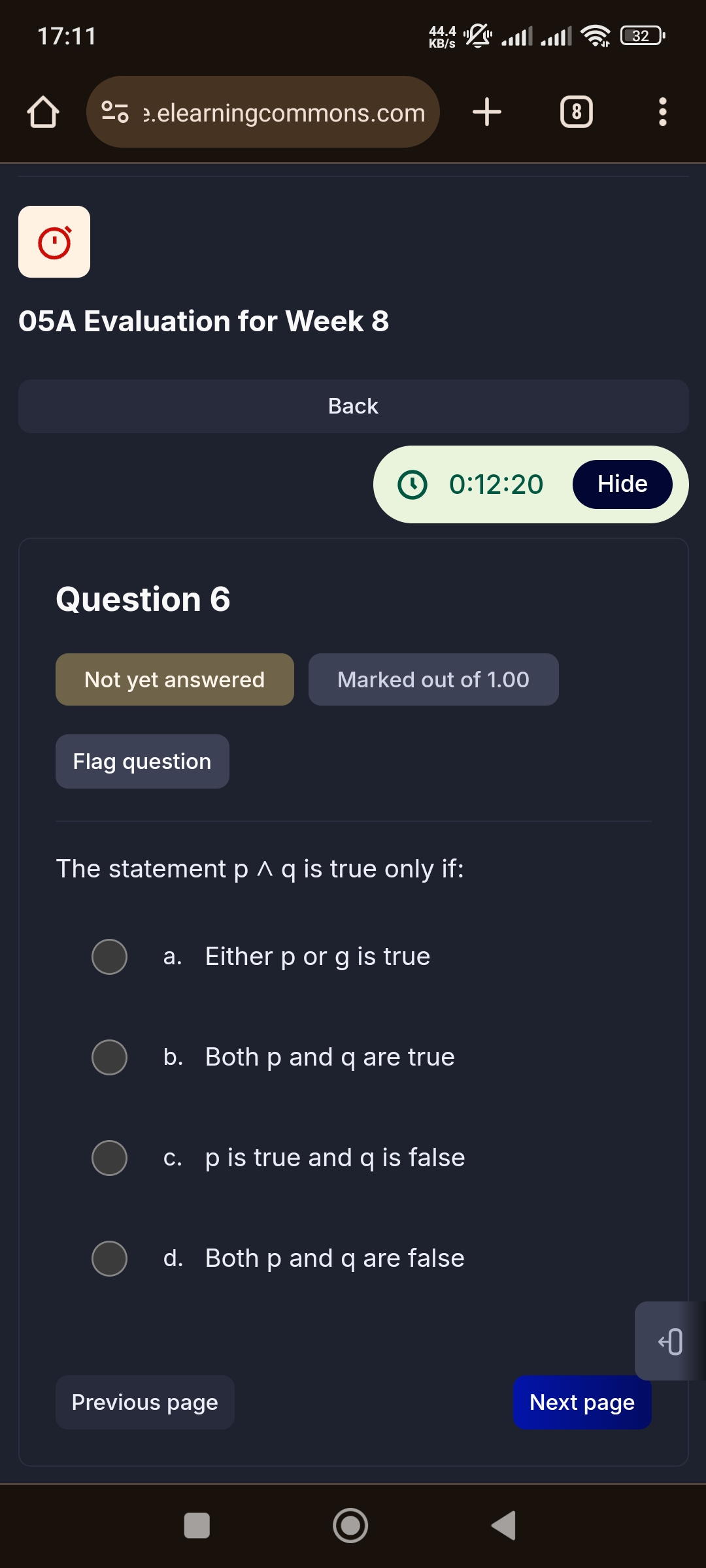The statement p ∧ q is true only if: a. Either p or g is true b. Both p and q are true c. p is true and q is false d. Both p and q are false

Understand the Problem
The question is asking about the logical statement p ∧ q and what conditions need to be met for it to be true. It is a multiple-choice question requiring an understanding of logical conjunction in propositional logic.
Answer
Both p and q are true.
The final answer is b. Both p and q are true.
Answer for screen readers
The final answer is b. Both p and q are true.
More Information
The logical conjunction (p ∧ q) is only true when both component statements p and q are true. This is fundamental in Boolean logic used in mathematics and computer science.
Tips
A common mistake is confusing conjunction (∧) with disjunction (∨). Remember, ∧ requires both to be true; ∨ requires at least one to be true.
Sources
- Statements and Logical Operators - math.libretexts.org
AI-generated content may contain errors. Please verify critical information